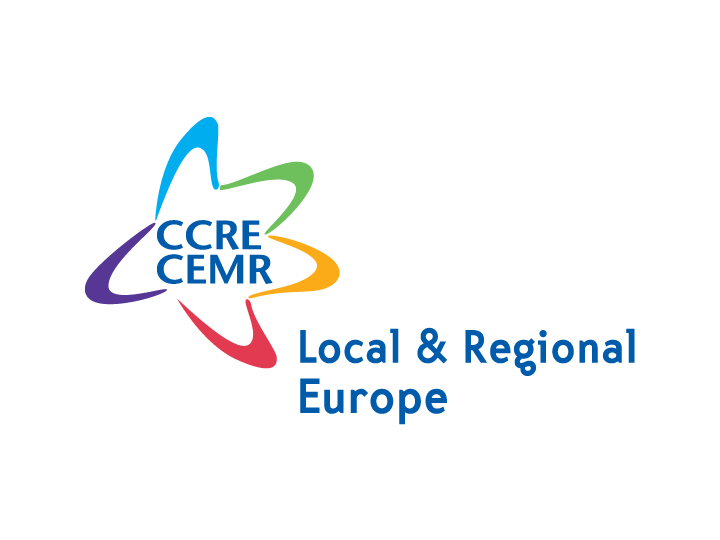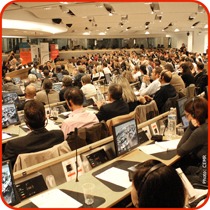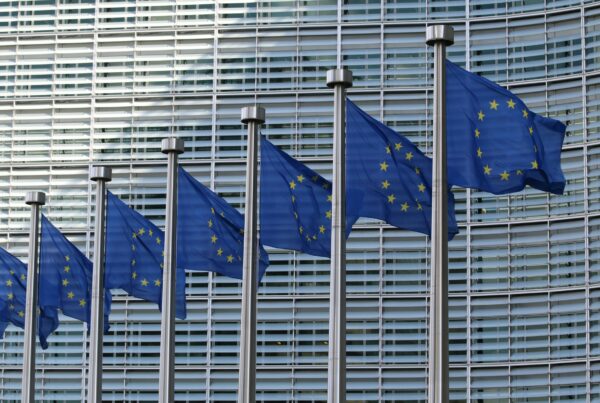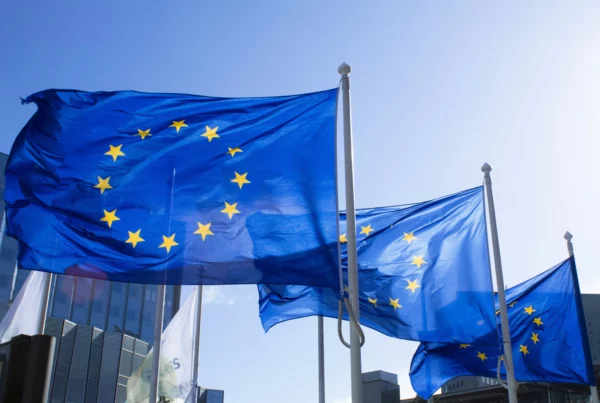Open Days: Municipalities and regions call on EU to strengthen partnership principle in new cohesion regulations
This call was issued at the occasion of the main workshop of the 2012 Open Days, organised on 9 October 2012 by the Council of European Municipalities and Regions (CEMR), a number of its national member associations of local and regional government and the European Commission.*
Some hundred elected members from the Erasmus programme for local and regional elected representatives, European and national councillors, members of European Parliament and experts participated in the workshop, held under the patronage of the Committee of the Regions (CoR).
“Local development is a key pillar of the 2014-2020 EU integrated territorial development policies and therefore needs to be more of the focus of attention in the policy debate than was the case in the previous programming period. CEMR, which has begun working with its new thematic platform on sustainable territorial and local development, wishes to help further the debate and reflection process on such issues as the future of the European cohesion policy. It is time to highlight the territorial dimension and local development in work undertaken at the European level.” – Carola Gunnarsson, Chair of CEMR thematic platform on sustainable territorial and local development and Vice-President of the Swedish Association of Local Authorities and Regions (SALAR)
“A decentralised way of financing integrated local strategies through community-led local development (CLLD – a tool that brings together different EU funds) is the right approach from the point of view of local authorities. Indeed, it helps us carry out our joint efforts for greater efficiency in the use of European funds and in achieving the goals of the Europe 2020 strategy. In Romania, with regard to funding for growth poles (territorial focal points of growth) and sustainable territorial development in the current programming period, we have had high expectations for CLLD. This includes: boosting institutional capacity in municipalities, adopting a more strategic vision for local development and reducing administrative burden.” – Tudor Pendiuc, Mayor of Pitesti, President of the Association of Romanian Municipalities (AMR)
“The ten years of experience we have had with EU funds has undoubtedly increased the capacity for cooperation of Estonian cities, rural municipalities and the smaller communities within these. Also, as one of the EU’s newcomers, we perhaps have a fresher outlook when it comes to recognising some of the unnecessary barriers and over-regulations. The proposals discussed during this workshop for the next programming period seem favourable and workable, and on this basis, we hope to find good solutions for the domestic operational programmes.” – Mihkel Juhkami, Chairman of Rakvere City Council, Vice-President of the Association of Estonian Cities (AEC)
“We have some excellent examples in Wales of community involvement in the current funding programmes. It is crucial that we build on these positive experiences if we are to truly empower communities through the local development approach in the post-2013 programmes. Events like this are important in order for us to learn from one another and to share new ideas and best practices. As our recent lobbying work through CEMR has shown, the voice of local and regional government is stronger when we work together.” – Bob Bright, Leader of Newport City Council, Welsh Local Government Association (WLGA), full member of the CoR
“The community-led local development proposal will bring together the existing EU regional, social, fisheries and rural funds and allow these to deliver by empowering local communities. In Scotland, COSLA, the municipalities and the Scottish Government have been working for most of this year to see whether CLLD can become a pillar of the new Scottish Partnership Agreement 2014-2020. That is why I have put myself forward as CoR rapporteur to further the discussion on this important issue.” – Graham Garvie, Convener, Scottish Borders Council, Convention of Scottish Local Authorities (COSLA), CoR rapporteur on community-led local development
What does Europe say?
"What we see in the new legislative proposals is the common approach to support a strong community-led local development to reinforce the multi-level governance through real ‘multi-funded’ local development strategies. The coordination of all five funds under one roof will improve the strategic choices for the local level. Moreover, fostering territorial development on a sub-regional level is a cross-cutting issue for inclusive growth. Therefore we have to consider the local needs and their potential for innovation, networking and cooperation in the upcoming process of negotiations." – Constanze Krehl, Member of the European Parliament, Co-Rapporteur on General Regulation of Cohesion Policy
*The workshop, called “Local development as a key pillar of EU integrated territorial development policies 2014-2020” is organised by CEMR in collaboration with the European Commission (directorate generals for regional policy (REGIO); employment, social affairs and inclusion (EMPL); agriculture and rural development (AGRI); maritime affairs and fisheries (MARE)) and a number of CEMR’s member associations (the Convention of Scottish Local Authorities (COSLA), the Welsh Local Government Association (WLGA), the Romanian Municipalities Association (AMR), the Swedish Association of Local Authorities and Regions (SALAR), the Association of Estonian Cities (ELL) and the Association of Municipalities of Estonia (EMOVL).
rn

Climate, Sustainable Finance Officer






